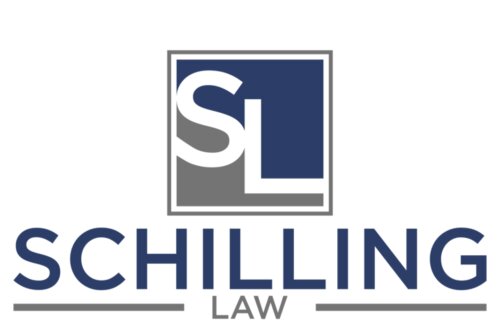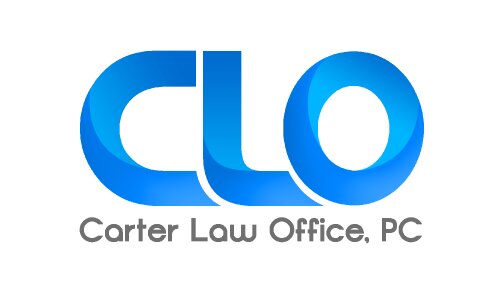Best Real Estate Lawyers in Kansas
Share your needs with us, get contacted by law firms.
Free. Takes 2 min.
Free Guide to Hiring a Real Estate Lawyer
Or refine your search by selecting a city:
List of the best lawyers in Kansas, United States
United States Real Estate Legal Questions answered by Lawyers
Browse our 2 legal questions about Real Estate in United States and read the lawyer answers, or ask your own questions for free.
- What is owner of condo units obligation as far as damage to the condo below their unit.
- The unit above my condo is managed by a Property Management company, and it was rented. During the time it was rented, there were water leaks that damaged my ceilings, and the Management Company. refuses to fix the ceiling so that it matches the rest of the ceiling. Even though... Read more →
-
Lawyer answer by Horus Legal Sulotion
Thank you for sharing the details of your situation. Based on the circumstances you described, you may have grounds to escalate the matter legally. You can file a case to request the appointment of a government engineer from Dubai Municipality...
Read full answer - What's the fee for reviewing a Home purchase contract.
- How much is your fee for looking over a contract on the house I am about to purchase.
-
Lawyer answer by US Legal Group 美国法律集团律师事务所
Hi. Thank you for reaching out to us regarding your upcoming property purchase. As a combined China & U.S. law firm, we specialize in real estate transactions and are well-equipped to review your contract.To provide you with a precise quote,...
Read full answer
United States Real Estate Legal Articles
Browse our 4 legal articles about Real Estate in United States written by expert lawyers.
- NY Lease Audits 2026: Mixed-Use Liabilities
- Commercial real estate in the United States is governed mainly by state law, but federal rules on discrimination, financing, and taxation still shape how you invest, lease, and manage property. For mixed-use buildings in New York City, new "Good Cause Eviction" style protections for certain residential tenants can cap rent... Read more →
- NYC Local Law 97 Fines: Defend Owners 2026
- Starting in 2026, New York City will begin collecting Local Law 97 emissions fines for buildings that exceeded their 2024 limits, at $268 per metric ton of CO2-equivalent over the cap. Owners can significantly reduce or defer penalties by documenting "Good Faith Efforts," including signed retrofit contracts, permits, financing commitments,... Read more →
- Squatters Rights in Texas 2026:How New Laws Expedite Removal
- Real estate law in the United States is mostly state based, but key federal laws like the Fair Housing Act and RESPA still shape every sale, lease, and loan. Title, deeds, and recording with the county clerk or recorder are what legally prove who owns a property and who has... Read more →
About Real Estate Law in Kansas, United States
Real estate law in Kansas covers the rules and regulations governing the ownership, leasing, purchase, sale, and financing of land and buildings. Whether you are a homeowner, a potential buyer, a landlord, or a developer, understanding the legal aspects of real estate is essential. Kansas real estate transactions are guided by state statutes, administrative regulations, and local ordinances that help protect buyers, sellers, tenants, and property owners. Real estate law can involve both residential and commercial properties and may include issues related to zoning, property taxes, land use, and foreclosure.
Why You May Need a Lawyer
There are several scenarios where an individual or business may need legal expertise in real estate matters. These include:
- Selling or purchasing a home or commercial property
- Drafting or reviewing purchase agreements or lease agreements
- Handling disputes between buyers, sellers, tenants, or landlords
- Resolving boundary line or easement conflicts
- Dealing with zoning or land use regulations
- Facing foreclosure or delinquent property taxes
- Managing issues with homeowners associations
- Transferring property through inheritance or divorce
- Addressing title defects or performing title searches
A Kansas real estate attorney can guide you through complex legal procedures, ensure your documents comply with state and local laws, and represent your interests in negotiations or courts if necessary.
Local Laws Overview
Kansas has unique legal rules and customs relating to real estate transactions. Some key aspects include:
- Required Disclosures: Sellers must provide certain disclosures about known defects and hazards associated with residential property.
- Real Estate Transfers: Most transactions require notarized deeds and must be recorded at the county register of deeds where the property is located.
- Title Insurance: Title insurance is widely used to protect buyers and lenders from claims related to prior ownership or title defects.
- Zoning and Land Use: Local zoning ordinances control how land can be used, which affects both new developments and renovations.
- Landlord-Tenant Laws: Kansas statutes provide detailed rules for security deposits, eviction proceedings, and rental agreements.
- Foreclosure Process: Kansas is a judicial foreclosure state, meaning foreclosures typically require court involvement.
- Homestead Protection: Kansas law offers broad homestead exemptions, protecting a portion of home equity in bankruptcy or certain legal actions.
Frequently Asked Questions
What disclosures are Kansas home sellers required to make?
Sellers must disclose known material defects in the property, including issues with plumbing, heating, electrical systems, roof, or foundation. Failure to disclose may result in liability for damages.
Do I need a lawyer to buy or sell real estate in Kansas?
While a lawyer is not required by law, having one can help ensure legal documents are accurate, contracts are fair, and all local requirements are met, reducing your risk of legal problems.
How do property taxes work in Kansas?
Kansas property taxes are assessed locally, based on the appraised value as determined by the county. They fund local schools, roads, and public services. You typically pay property taxes twice a year.
What happens if there are title defects?
Title defects can prevent a smooth transfer of property. Title insurance protects buyers and lenders against covered problems, and attorneys can help resolve disputes involving liens, boundary disputes, or clerical errors.
Can I terminate a lease early in Kansas?
Kansas law sets conditions for early lease termination, such as military deployment or landlord violations. Otherwise, breaking a lease can result in penalties unless an agreement is reached with the landlord.
How does foreclosure work in Kansas?
Kansas follows judicial foreclosure procedures. The lender must file a lawsuit and obtain a court order to foreclose. Homeowners generally have a redemption period after sale to reclaim their property by paying outstanding costs.
Are there protections against predatory lending?
Yes, Kansas and federal laws prohibit certain predatory lending practices, such as deceptive terms or excessive fees in high-interest or subprime mortgages. If you suspect predatory lending, legal help is recommended.
What are my rights as a tenant in Kansas?
Kansas tenants have rights concerning health and safety, quiet enjoyment, timely repairs, and return of security deposits. Landlords must follow legal eviction processes and cannot discriminate based on protected characteristics.
Who handles zoning in Kansas?
Zoning and land use planning are managed at the city or county level. Local planning commissions review applications for rezoning, variances, and permits for property development or use changes.
How do I resolve a boundary dispute with a neighbor?
Boundary disputes may require a professional land survey and negotiation, but legal action in court may be necessary if parties cannot agree. An attorney can assist with interpretation of deeds and applicable property laws.
Additional Resources
If you need more information or assistance with real estate matters in Kansas, consider the following resources:
- Kansas Bar Association - Offers referral services and legal resources.
- Kansas Real Estate Commission - Regulates real estate licensees and offers consumer information.
- County Register of Deeds - Handles property records and real estate documents.
- Kansas Housing Resources Corporation - Provides information on housing assistance programs.
- Local Legal Aid Societies - May offer assistance to qualified low-income individuals.
- City or County Planning Departments - Manage zoning, permits, and land use questions.
Next Steps
If you are facing a real estate issue in Kansas, begin by clearly identifying your specific concern, gathering any related documents or communications, and outlining your ideal outcome. Consider reaching out to a qualified Kansas real estate attorney for a consultation. Many attorneys offer initial meetings to discuss your case and explain your rights and options. You can also contact the Kansas Bar Association for a referral to a licensed practitioner in your area. Taking prompt action and seeking professional legal guidance can help protect your interests and ensure a smooth real estate transaction or dispute resolution.
Lawzana helps you find the best lawyers and law firms in Kansas through a curated and pre-screened list of qualified legal professionals. Our platform offers rankings and detailed profiles of attorneys and law firms, allowing you to compare based on practice areas, including Real Estate, experience, and client feedback.
Each profile includes a description of the firm's areas of practice, client reviews, team members and partners, year of establishment, spoken languages, office locations, contact information, social media presence, and any published articles or resources. Most firms on our platform speak English and are experienced in both local and international legal matters.
Get a quote from top-rated law firms in Kansas, United States — quickly, securely, and without unnecessary hassle.
Disclaimer:
The information provided on this page is for general informational purposes only and does not constitute legal advice. While we strive to ensure the accuracy and relevance of the content, legal information may change over time, and interpretations of the law can vary. You should always consult with a qualified legal professional for advice specific to your situation.
We disclaim all liability for actions taken or not taken based on the content of this page. If you believe any information is incorrect or outdated, please contact us, and we will review and update it where appropriate.
Browse real estate law firms by service in Kansas, United States
Kansas, United States Attorneys in related practice areas.
Browse real estate law firms by city in Kansas
Refine your search by selecting a city.















